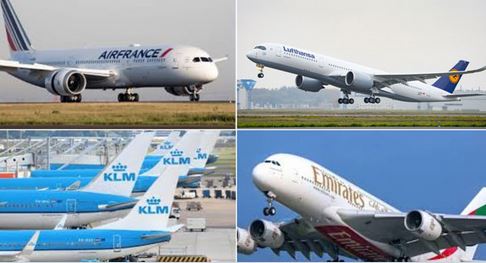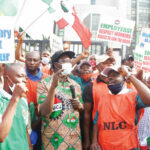
The accusation by the Association of Foreign Airlines and Representatives in Nigeria that the Federal Government violated the Bilateral Air Service Agreement as touching the repatriation of foreign airlines’ funds, will lower investor interests in the country, the Aviation Safety Round Table Initiative has said.
Speaking on behalf of the ARTI, an official of the aviation think-tank, Olumide Ohunayo, expressed concern on how the accumulated foreign airlines’ funds was being handled.
He said the funds were trapped in banks, as this was due to the non-allocation of foreign exchange to the affected airlines.
“In all Bilateral Air Service Agreement, an Article in the agreement — Transfer of Earnings, clearly states that ‘each designated airline shall have the right to convert and remit to its country on demand, local revenues in excess of sums locally disbursed,” he stated.
Ohunayo added, “Conversion and remittance shall be permitted without delay in accordance with the prevailing foreign exchange regulations.
“International trade is bound by agreements which are sacrosanct and respected. Nigeria cannot do otherwise if we crave the attention of investors in our industry.”
According to Ohunayo, foreign airlines sold tickets at the official international rates and “cannot be expected to go to the parallel market to source, convert and remit as opined in some quarters.”
He added, “The Central Bank of Nigeria should do the needful as enshrined in the BASA agreement.”
Ohunayo said the funds should have been remitted at the official rate on the date of sale immediately after the airlines got clearance after paying all the local obligations, including taxes.
“The damage that our action has done to the Nigerian image as an investment-friendly nation is far-reaching, while the citizenry is faced with high fares, reduced capacity and limited travelling options, which will worsen if we continue on this trajectory.”
He said Nigeria was in this situation because domestic airlines were not up to the task to compete on the foreign scene. He also proffered a possible solution.
He said, “We found ourselves in this unenviable situation because we lack the capacity to compete, which would have reduced the remittance volume.
“ The unborn Nigeria Air cannot produce this capacity, irrespective of the funds allocated, but by an aggregated process of developing our industry to produce vibrant flag carriers that will be courted for commercial partnerships, which is the purveyor for successful international flight operations.
“We are also of the opinion that to kick start this process, a functional and credible data-gathering methodology for the industry is a necessity. We cannot continue to blow hot air without verifiable data.”
Speaking further on solutions, in an earlier report by The PUNCH, a former Director-General of the Nigerian Civil Aviation Authority, Dr Harold Demuren, urged the Federal Government to allow first-class and business-class passengers to buy tickets in dollars, while passengers in economy class could pay in naira.
He said this during the Aviation Round Table second quarter 2022 Breakfast Business Meeting.
According to the former NCAA boss, doing this would help the carriers to repatriate their funds with ease and put a stop to the issue of trapped funds or, at best, help to significantly eliminate the problem.
Airlines on APG Interline Electronic Ticketing Agreements GP code 275 had, in April this year, disclosed that they would start issuing tickets in United States dollars and not naira.
Demuren’s position sits with foreign carriers who had initially planned to start asking passengers from Nigeria to start paying for their tickets in dollars.
“Listen to me, you must take emotions out of it. When people leave the shores of Nigeria, what do they spend? Naira? The people in the first-class and business class are people who have money, and who can pay in dollars, but it is due to the current forex crisis.





